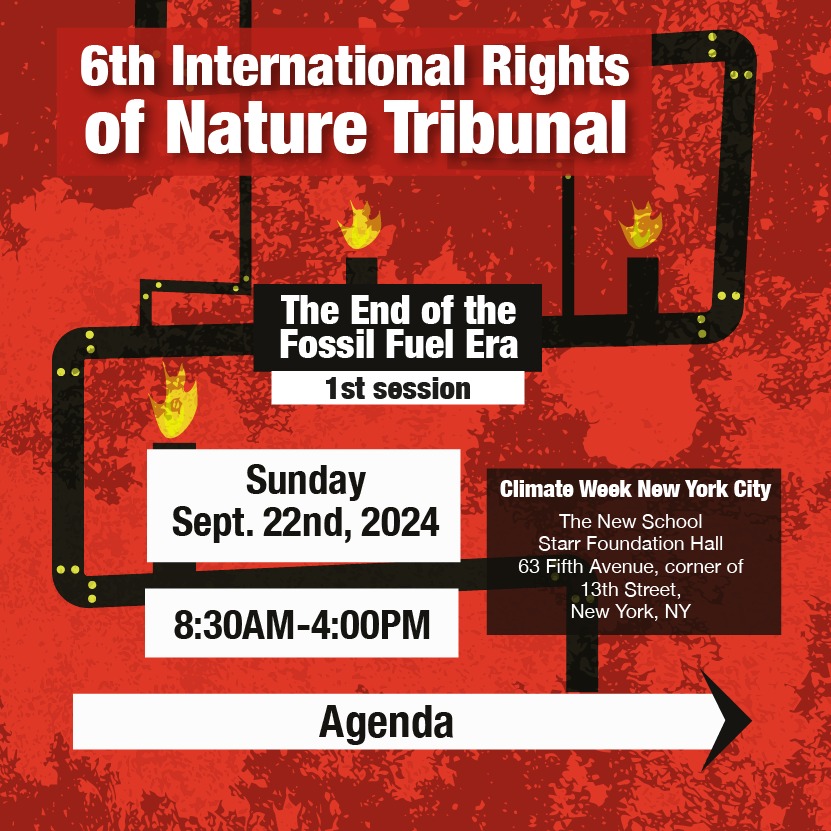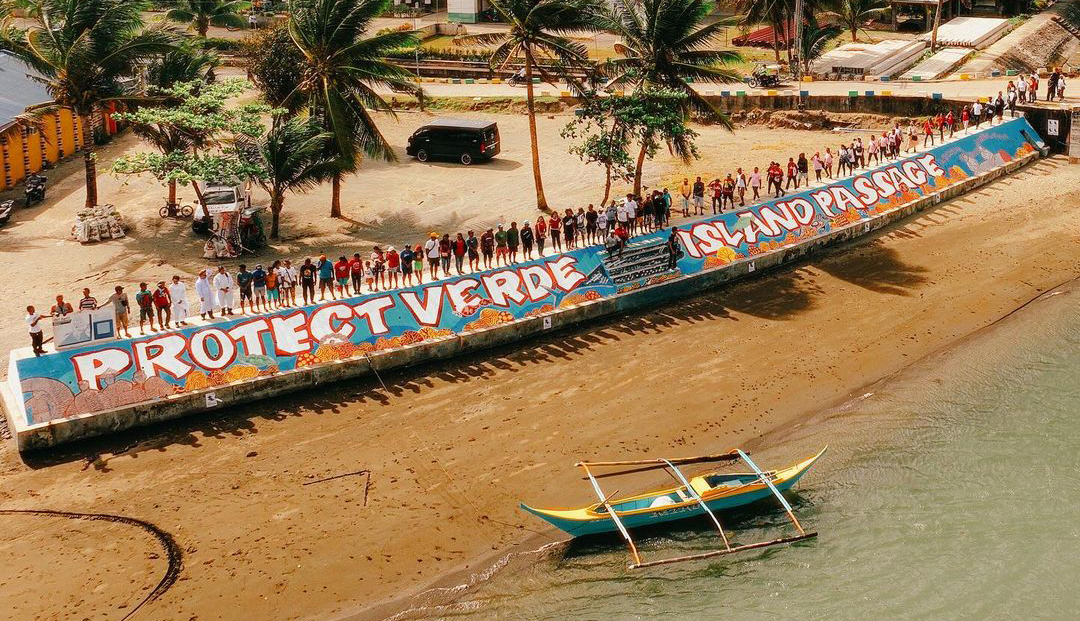
Photo: One year after the oil spill, youth, church, fisherfolk, and members of the community commemorated the day with a mural. Credit: ProtectVIP.org, Jilson Tiu for CEED
Voices from the South Newsletter
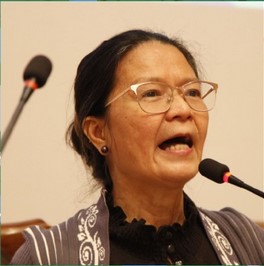
Yolanda R. Esguerra
Yolanda is the National Coordinator of Philippine Misereor Partnership, a 230-plus members network that works on sustainable agriculture and fisheries, environmental protection, and climate change mitigation.
She is part of the Asia-Pacific Hub of the Global Alliance for the Rights of Nature.
Presentation of Yolanda R. Esguerra, on behalf of the Verde Island Passage
This text is a transcript from Yolanda’s presentation on 22nd September, 2024. It was edited and condensed for clarity.
Good day, I am Yolanda Esguerra from the Philippines, an activist.
I am currently the national coordinator of a network the Philippines that supports the struggle of communities against mining and other aggressive and destructive development projects.
I am a pioneering advocate of the rights of nature campaign in the Philippines, which gave birth to a robust and far-reaching rights of nature movement in the country. This movement is pushing for a law that would recognize the rights of nature for a specific ecosystem.
Most importantly, the movement is concerned about protecting distressed ecosystems in the country, including the Verde Island Passage, and I plan to file the case on their behalf. It has become a victim of an oil spill and is further at risk because it is threatened by the expansion of fossil fuel or liquefied natural gas.
On February 28, 2023, a fuel tanker carrying 800,000 liters of industrial oil capsized off the coast of Oriental Mindoro. An ecological nightmare unfolded in the days that followed.
Since this is the convergence of the Indian and Pacific Ocean, and the unique specifies in the area and a specific biodiversity. It is therefore not just a local treasure. Its not just for the Philippines, but it is a global asset we must all strive to protect.
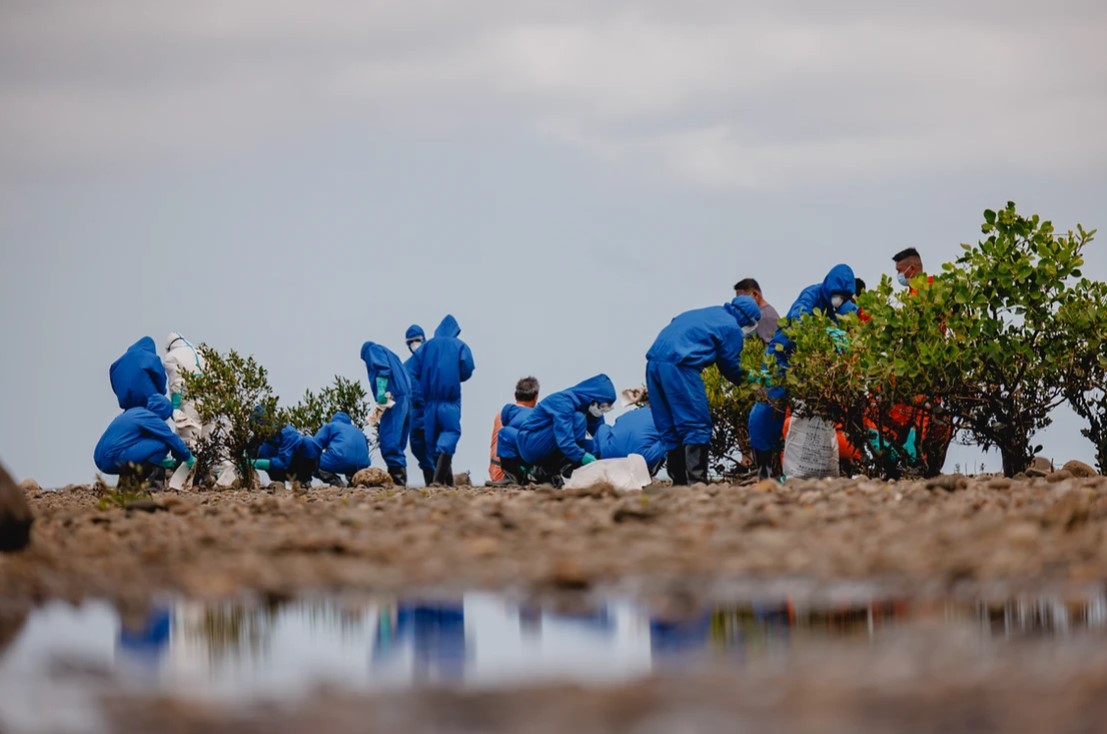
We believe that the rights of the Verde Island Passage ecosystem and all its inhabitants have been violated. The oil spill has impacted all marine inhabitants, and the community of people around the passage. The Verde Island Passage is home to critically endangered hawksbill turtles, majestic whales, graceful manta rays, gentle dugongs, magnificent humphead wrasses, colossal giant groupers, resilient giant clams, 300 species of coral reefs, 32 species of mangroves, and 20 species of seagrasses.
At the same time, it has directly affected 13,000 fisherfolk in the area and 200,000 people.
The “Center for Energy, Ecology, and Development”, an independent research and advocacy institution, estimated that the oil spill caused environmental damage totaling around 4.1 billion pesos and socioeconomic losses totaling 1.1 billion pesos.
The Verde Island Passage’s right to life and existence has been violated. A day after the spill, ground zero of the oil spill yielded dead fishes on the shorelines, and oil slicks smothered the roots and leaves of the mangroves. A week after the tragedy, the government’s Bureau of Environment and Natural Resources projected that more than 2,000 hectares of corals, 1,000 hectares of seagrasses, and over 1,600 hectares of mangroves were damaged or will be damaged.
We believe that the rights of the Verde Island Passage ecosystem and all its inhabitants have been violated. The oil spill has impacted all marine inhabitants, and the community of people around the passage
However, these estimates are conservative, and the government wishes somehow to downplay the damage caused by the oil spill. While academics, like those from the University of the Philippines Marine Science Institute, estimated five to ten times more the extent of the damage.
The right to be free from contamination and pollution has also been violated, along with the right to have clean water. Water testing done three times showed that the water quality exceeded acceptable standards, thus violating the ecosystem’s right to regenerate and flourish.
In fact, a year after the spill, even though fishing activities returned to normal, Oriental Mindoro fisherfolk reported that their catch dwindled from about 20 kilos a day to 5.7 kilos.
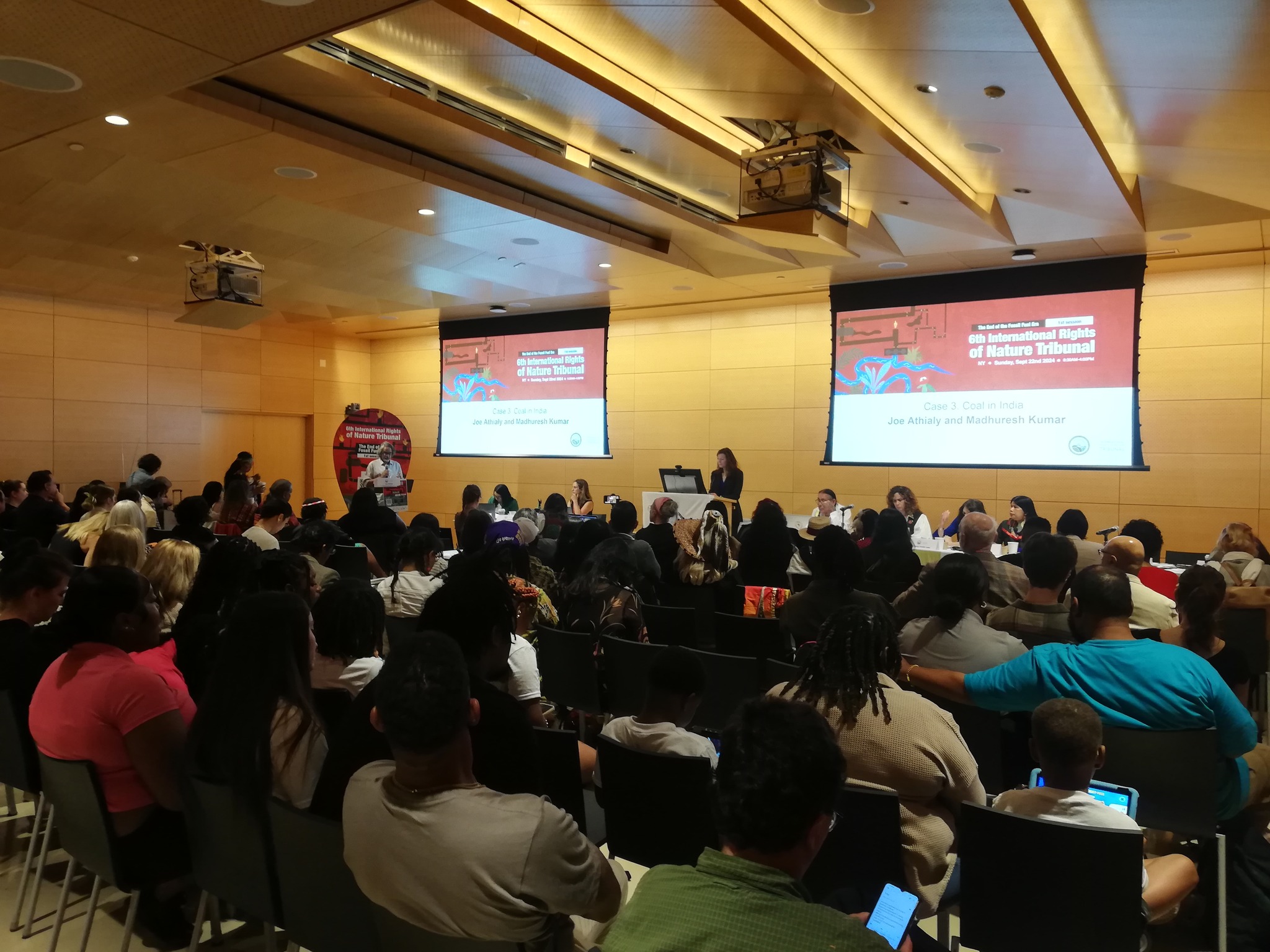
We hold the corporations and governments responsible for the oil spill’s impact on the ecosystem. The owner of the ship, and the owner of the oil—San Miguel Corporation—should be held responsible. The owners of the ship were penalized, but not San Miguel Corporation. They paid only for the violations, which were not related to the environmental damages.
We have to demand that they assume full responsibility to pay for the damages of the oil spill. Corporate greed and the drive to over-extract from nature for the profit of big corporations like San Miguel must be stopped.
We also hold the government responsible. The government maritime institutions failed to ensure that the proper maritime regulations were met. They have a duty and responsibility to uphold the rights of people and nature for a balanced and healthy ecology. The government has no comprehensive plan after the oil spill for the rehabilitation to compensate for biodiversity loss in the area. The only plan we have heard recently is that they intend to sign a Memorandum of Agreement with three major corporations, who are supposedly containing a plan to protect the Verde Island Passage. We are worried about this partnership. These corporations have the most interest in utilizing our resources.
Learn more about GARN Asia Pacific Hub, including a video greeting from Yolanda taken at the Tribunal
These partnerships will also displace the marginalized communities who are protecting the marine areas. We ask the Tribunal to support our advocacy, require divestment from fossil fuels in the area, and work towards a just transition.
We would like to ask the Tribunal to join our call to support our advocacy and to phase out the dirty fossil fuel industry. This also relates to calls to phase out fossil fuels in the Sustainable Development Goals by 2030. This is also the call made recently at the COP.
Recognizing the rights of nature, we have already filed a bill that will recognize these Rights of Nature in Congress in the Philippines. We also ask for advocacy support in passing a bill on the “Rights of Nature”, to help protect areas like this area. We will use this in looking at the impact of the oil spill in the Verde Island Passage.
We ask that we also call on the UN General Assembly pass the “International Declaration on Ocean Rights”, and to amplify and give support to environmental defenders.
Interested in learning more?
The 6th International Rights of Nature Tribunal, organized by Karibu partner GARN, highlighted the urgent need to transition away from fossil fuels and put the Rights of Nature at the heart of the response to the climate crisis.
You can now watch it in full here: https://youtu.be/BIF7l_zjpFM or check out the individual videos of each intervention here: https://youtube.com/playlist…
